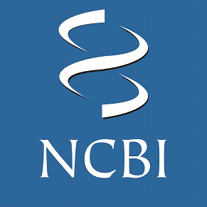In the fall of 2021, I worked in the Computational Turbulent Reacting Flow Laboratory under the guidance of Professor Michael Mueller. In the Mechanical and Aerospace Engineering (MAE) department, junior independent research is optional. I enrolled in MAE339: Junior Independent Work in the fall and am currently continuing my research this spring semester. Research was an integral part of my high school experience, and I was excited to start working on independent research in my junior year of college in a different setting. Now, I want to share a few of the lessons I learned from this past semester with you:
Lessons from My First Major Research Essay
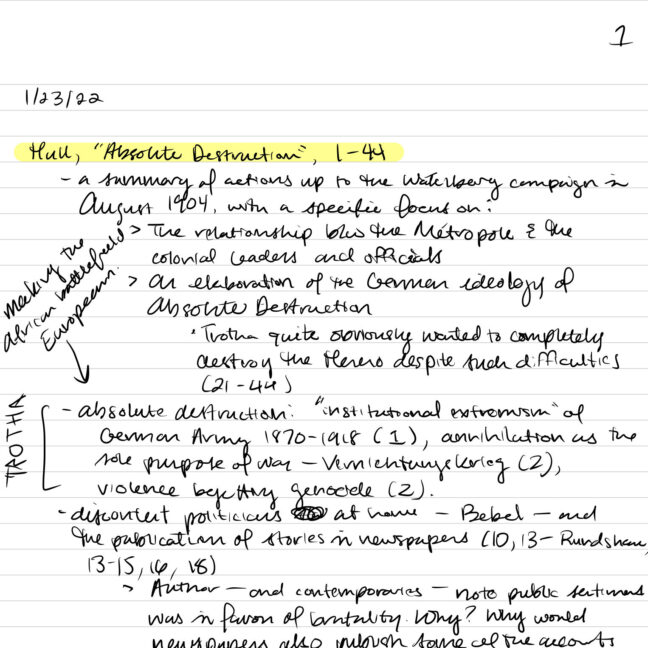
As I dive into my second junior paper, I’ve begun to realize how much more serious this paper is than the first one. Gone are the safety rails once provided by Princeton’s History department; instead of a course with concrete deadlines, I am now in the metaphorical Wild West, negotiating with my advisor on a whole bunch of elements: deadlines, research content, framing, among others. Even though it is only February when I write this, the April deadline eyes me ominously. With four classes and an array of extracurricular activities, whatever will I do to survive my second JP? How can I even anticipate the thesis?
At PCUR, we’ve done plenty of reflections on our prior research experiences. The more I think about it, the best thing to do is to reflect on my first JP. In that paper, I explored the attitudes and ideologies of consumption that post-war consumers held, particularly in relation to an acute shortage of nylon stockings. Sifting through dozens of articles in local newspapers, I identified many letters to the editor that female consumers sent in to voice their opinion about how nylons should be distributed, who deserves them, and how the shortage was affecting their everyday lives.
Although I am undoubtedly proud of the final product, there were many things I could improve about it. From the way I kept sources and my reading schedule to my writing method and the final editing process, I could enumerate an endless list. For now, I will highlight two of the biggest takeaways from my first JP, which will be particularly useful given the abbreviated timeline of the second paper.
Continue reading Lessons from My First Major Research EssayGet Your Independent Work Done Without Stress
As a B.S.E junior doing independent work for the first time, I am already anticipating the stressful cram at the end of the semester that comes with senior thesis and junior independent work deadlines. As busy Princeton students, we often don’t think that we have enough time in the week to work consistently on our independent work, and thus, a lot of it inevitably gets pushed off to the weeks (and days) before the deadline. But it doesn’t have to be this way. Putting together a comprehensive plan to organize and budget your time at the beginning of the semester can save so much hassle down the road. Therefore, I think it will be helpful to walk through how to create a plan for independent work over the course of the semester.

NCBI: An Invaluable Tool for Life Sciences Classes and Research!
Have you ever come across something in class that you wish you could get a better Have you ever been wondering more about how proteins are made in the body? Or have you ever been looking for a specific type of lab experiment protocol for your independent work? If yes, then look no further than the National Center for Biotechnology Information (NCBI) website! It contains dozens of resources, some of which I have found to be very handy in my own research and school experiences. The site is tailored for students in the life-sciences field, but there is a lot of breadth in the resources available—you’ll be able to find useful tools regardless of whether you’re a MOL or CHM major, or if you’re interests lie in researching chemically synthesis mental health, or neurodegenerative diseases.
A very useful tool on the NCBI website is Bookshelf. There is a search bar at the top of the website where you can input some topic, book title, or field name, and the program will return a variety of different reference materials relating to the query, including full scientific textbooks, book chapters, studies. On the side, there are often figures and graphs that may relate to your search.
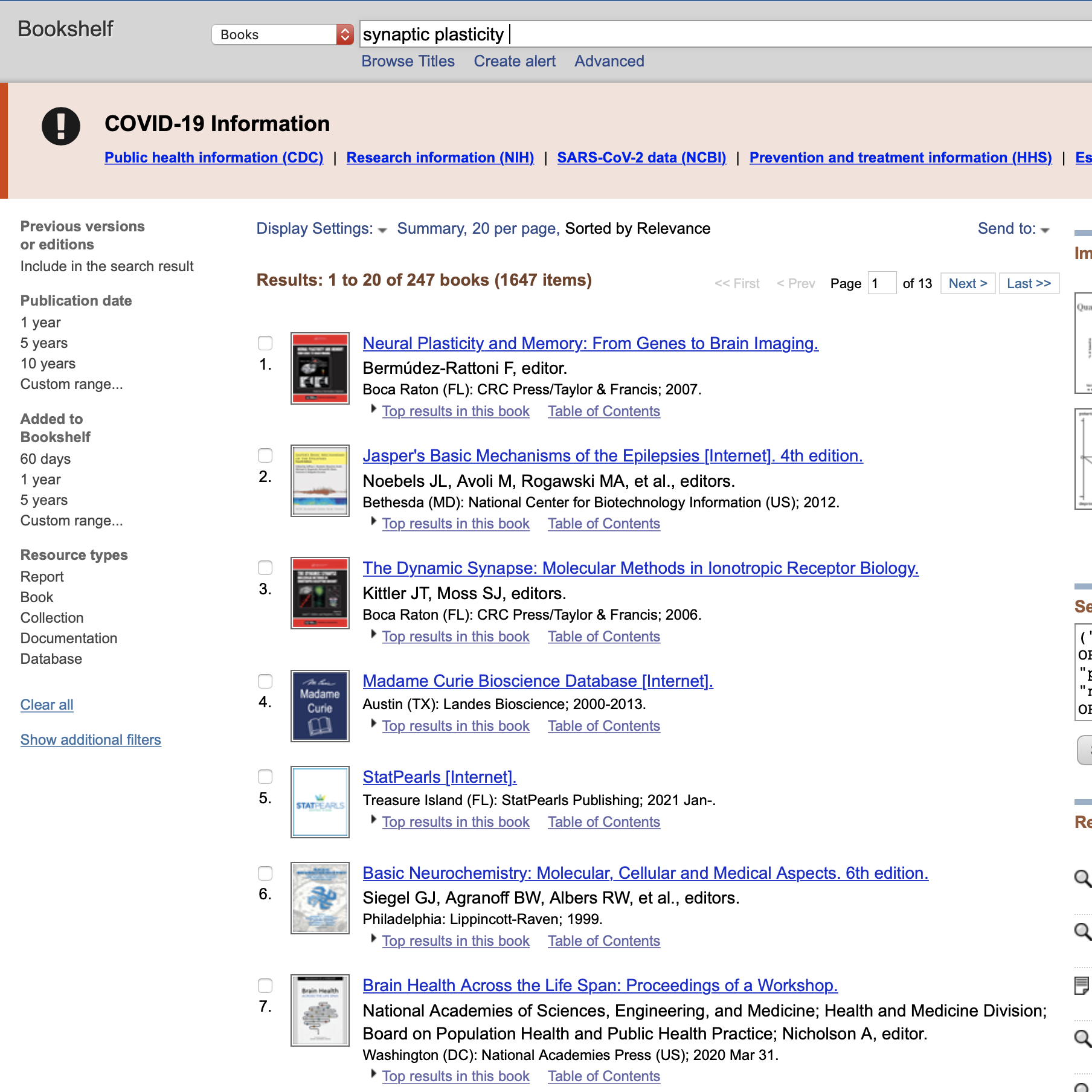
How to Get Involved with Lab-Based Research at Princeton
As a first-year B.S.E student with little to no previous research experience, the idea of writing an eighty-page senior thesis based on my own lab-based research seemed like an extremely daunting task. Now, into the first semester of my junior year, the thought of having to write a thesis next year still seems like a challenge, although a lot less intimidating than two years ago. The main reason for this is because I have participated in multiple research-based summer internships through Princeton, which have helped me feel better prepared to do lab-based junior independent work and a senior thesis in the coming semesters.
You may also be wondering how early you can get involved with lab-based research at Princeton. Although there is certainly no pressure to do research as a first-year or sophomore if you do not want to, Princeton does make sure that opportunities are available for those who do want to be involved early. Here’s a timeline of some of the different lab-based opportunities available, and when you can start getting involved.
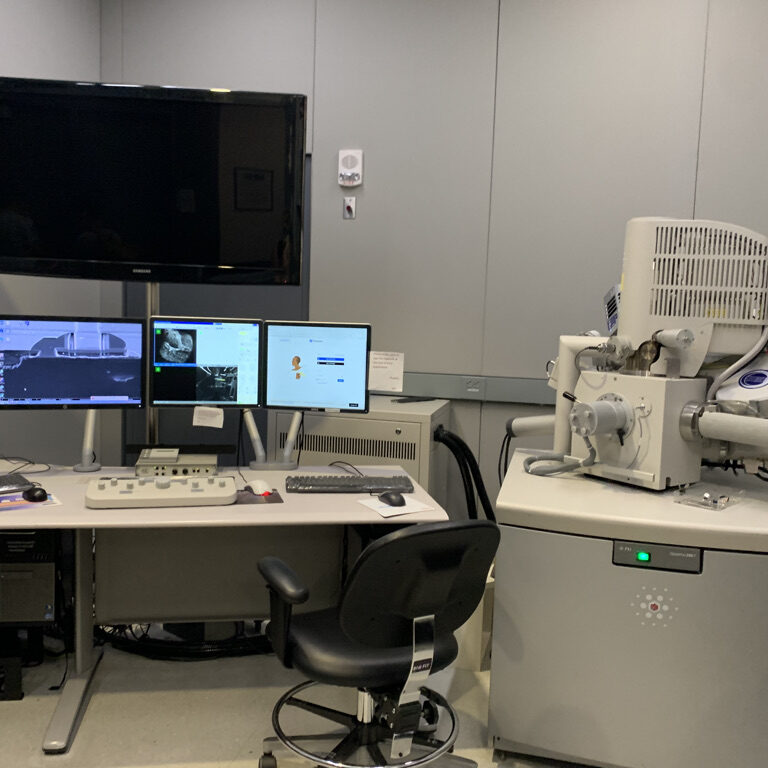
A Quick Crash Course in Statistics: Part 2
Most people’s New Years Resolutions, I imagine, are not about improving their knowledge of statistics. But I would argue that a little bit of knowledge about statistics is both useful and interesting. As it turns out, our brains are constantly doing statistics – in reality, our conscious selves are the only ones out of the loop! Learning and using statistics can help with interpreting data, making formal conclusions about data, and understanding the limitations and qualifications of those conclusions.
In my last post, I explained a project in my PSY/NEU 338 course that lent itself well to statistical analysis. I walked through the process of collecting the data, using a Google Spreadsheet for computing statistics, and making sense of what a ‘p-value’ is. In this post, however, I walk through how I went about visualizing these results. Interpretation of data is often not complete before getting a chance to see it. Plus, images are much more conducive than a wall of text when it comes to sharing results with other people.
Continue reading A Quick Crash Course in Statistics: Part 2Tips for Planning a Research Trip
As I have written on this blog before, you unfortunately may not find all the material you need for a research project in Princeton’s own library system. Borrow Direct and Interlibrary Loan may help bring items from elsewhere to Princeton, but often with primary historical sources, you may find that you need to travel to an archive to view them. This is especially the case if the source you need is only available in its original form (and thus may be difficult for a peer institution to duplicate or send directly to Princeton), or if you are unsure of precisely what sources are available, and need to browse a collection in full.
I found myself in this position just a few weeks before fall break. As I explained here, I had just expanded my JP topic to consider a broad range of American antislavery responses to the Paris June Days rebellion of 1848. My adviser suggested I look through the manuscript collections of a number of prominent activists of the time. Many of them— such as Wendell Phillips, William Lloyd Garrison, and Theodore Parker— worked out of Boston, and, as I discovered, a number of institutions there now hold their papers. I soon realized I would have to make a trip over fall break if I wanted to view all of these collections.
Continue reading Tips for Planning a Research TripConnecting with Scholars beyond Princeton
It’s been almost four years, and the generosity of Princeton faculty continues to surprise me. So many professors here are not just accessible to students, but deeply invested in supporting us in and outside of the classroom. It typically isn’t too hard to find at least one research mentor among our 950 full-time faculty.
Nevertheless, one institution’s faculty cannot possibly cover every sub-field or research topic. This has become especially apparent as I’ve moved towards the specificity required of a thesis project. In my case, no professor on campus studies Vilna, the Eastern European city at the center of my thesis.
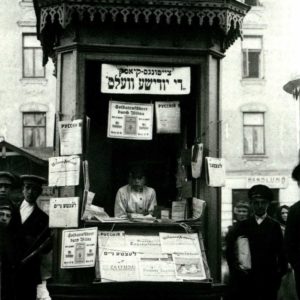
Of course, there are ways around this. For one, there is probably a professor on campus whose area of expertise has something in common with your project. My thesis adviser does not work on Eastern Europe, for example, but she is an expert in writing urban histories. So even though Vilna is new to her, she has been invaluable in guiding my methodology and argumentation.
She has also encouraged me to reach out to faculty and graduate students in other departments and at other institutions who might be more familiar with Vilna itself. Connecting with these scholars has turned out to be one of the most valuable aspects of my thesis process thus far. I’ve compiled some tips for accessing the rich academic network beyond your particular department or university.
Coursework and Independent Work: Using One to Guide the Other
Choosing a topic for independent work can be a challenging task. It can be difficult to narrow down the seemingly infinite research topics to one that you find compelling (see my post here with tips on how to do that), and on top of that, you have to juggle your research with coursework that may be unrelated. It isn’t always easy to switch gears between, say, literary criticism and your STL. That said, your coursework need not be totally separate from your independent work, and need not even parallel your independent work at the exact time you are conducting it. With courses for the spring semester just released, I want to suggest ways that you can structure your selections to complement (and even supplement!) your own research. This way, next semester, your own independent work may not actually be so “independent” after all. Continue reading Coursework and Independent Work: Using One to Guide the Other
Beyond Religion: Reimagining Scholarship in the Humanities

I’m often asked why I study religion. To those asking, my decision usually registers as vaguely interesting, if a bit niche, but certainly not as very “practical.” Often such conversations prompt inquiry into my own religious life—as if one could only study religion out of personal piety or an ascetic willingness to forego the earning potential of an economics or computer science degree. Temperamentally inclined to charitable conversation as I am, I try not to take misunderstandings or dismissals of what I do too seriously. As other humanities students likely know, being on the receiving end of such attitudes come with the disciplinary territory. Continue reading Beyond Religion: Reimagining Scholarship in the Humanities


